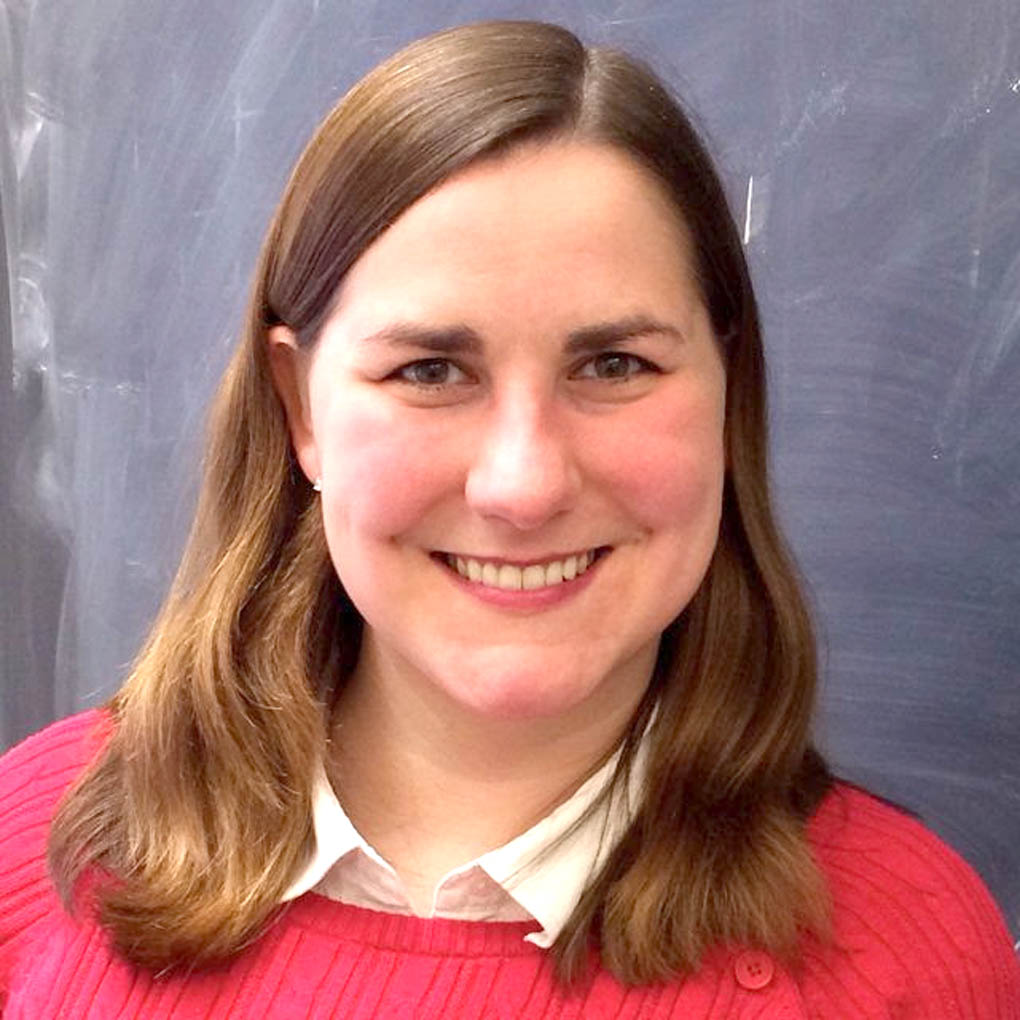
Adrienne Erickcek, Ph.D., Assistant Professor in the Department of Physics and Astronomy at the University of North Carolina at Chapel Hill, recently spoke at a Phi Theta Kappa event on the Central Carolina Community College Lee County Campus.

SANFORD - In her lecture to Central Carolina Community College students recently, Adrienne Erickcek, Assistant Professor of Physics and Astronomy at the University of North Carolina at Chapel Hill, said that about one in five stars - like our Sun - have Earth-like planets orbiting around them that could support life.
"In our observable universe, there are 100 billion galaxies, all moving away from us. Our galaxy alone, the Milky Way, consists of 100 billion stars, and there are planets just like Earth orbiting around billions of those stars. There is no shortage of places where there could be life," said Erickcek.
Erickcek was the featured speaker at a Phi Theta Kappa lecture held on CCCC's Lee County Campus. Her field is cosmology or the study of the Universe's evolution. She presented the evidence scientists have collected that the Universe began 13.8 billion years ago at the Big Bang. "But the Big Bang was not a gigantic explosion in otherwise empty space," said Erickcek. "Rather, it is an expansion of space itself. It is a moment in the past when every part of the Universe was at the same location," she said. "Since then, space has been expanding, and that's why we see galaxies moving away from us."
How do we know this? "When I look at a star that is four light-years away, I see it as it was four years ago," said Erickcek. "When I look at more distant objects, I see further and further into the past. The most distant thing we can see is the cosmic microwave background, and it shows us what the Universe was like 380,000 years after the Big Bang. Using this starting point, we can figure out how the Universe evolved to its present state."
As a theoretical cosmologist, Erickcek is interested in three major unknowns on the cosmic stage - dark matter, dark energy, and the inflaton field, a hypothetical energy source is thought to be responsible for the Universe's rapid and accelerating expansion immediately after the Big Bang.
In the standard cosmological model, Erickcek told students, each of these unknowns - dark matter, dark energy, and the inflaton field -- control the dynamics of the Universe during one stage of its evolution, but despite their importance, their nature is still mysterious. In her research, Erickcek analyzes how these unknowns might have behaved in the early Universe. She also studies alternate theories of gravity and the cosmic microwave background.
Erickcek graduated from Princeton University in 2003 and received a Ph.D. in physics from the California Institute of Technology in 2009. She joined the physics faculty at UNC-Chapel Hill in 2013.
Phi Theta Kappa is the official honor society for two-year colleges and the largest honor society in American higher education. It has more than two million members and 1,200 chapters in the United States, U.S. territories, Canada, and Germany. The organization encourages academic achievement and provides opportunities for individual growth and development through participation in honors, leadership, service, and fellowship programming. The CCCC chapter's activities focus on needs in the communities and its projects help to enable residents to achieve a better quality of life.
For more information on Central Carolina Community College, visit the website at www.cccc.edu.

Adrienne Erickcek, Ph.D., Assistant Professor in the Department of Physics and Astronomy at the University of North Carolina at Chapel Hill, recently spoke at a Phi Theta Kappa event on the Central Carolina Community College Lee County Campus.